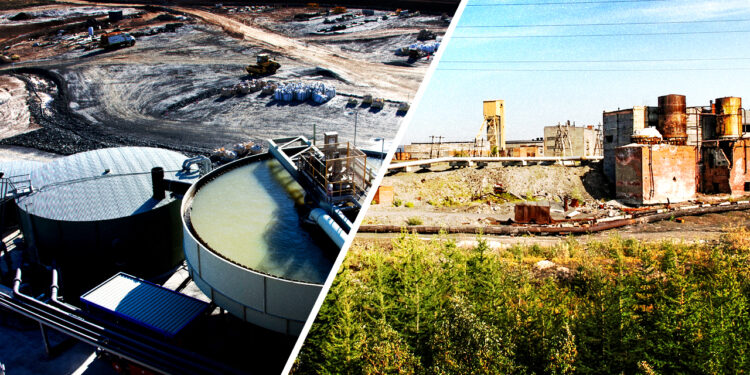Canada has approved over $28 billion in taxpayer funding for two battery plants, earning pushback from the country’s top budgetary bureaucrat.
At an April news conference in St. Thomas, Prime Minister Justin Trudeau pledged $13.2 billion for Volkswagen to build a new battery plant.
At the time, the Prime Minister’s Office (PMO) and Innovation Minister François-Philippe Champagne claimed taxpayers would ‘break even’ within five years.
In July, Ottawa and Ontario announced $15 billion in subsidies for a Stellantis-LG Energy Solutions EV battery plant in Windsor without mention of a ‘break-even’ timeline — down from their initial $19 billion figure.
According to the Department of Finance, the $15 billion funding breakdown is comprised of $10 billion from the federal government and $5 billion from Ontario.
However, a Parliamentary Budget Office (PBO) report published on September 12 revealed taxpayers will not see a return on their $28.2 billion investment for nearly two decades.
Swedish manufacturer Northvolt AB is nearing a deal to build Canada’s third electric vehicle (EV) battery plant near Montreal for $7 billion.https://t.co/cVQkXbBSkQ
— Rebel News Canada (@RebelNews_CA) July 4, 2023
According to Ottawa’s modelling, the break-even timeline is 3.3 years for the Volkswagen plant, under the assumption that all aspects of the EV supply chain are developed, including mineral exploration, mining, vehicle assembly and recycling.
The PBO said the Innovation, Science and Economic Development department relied on modelling from a 2022 report by the Trillium Network for Advanced Manufacturing and Clean Energy Canada, a non-profit think tank.
Budgetary Officer Yves Giroux called the government “very optimistic” in making that assumption.
Instead, the PBO estimate only includes the cell and module manufacturing of the two plants.
“So, a very optimistic assumption, considering that it’s a highly integrated auto sector in North America, and the investments could very well take place without these subsidies,” Giroux told the Globe and Mail.
“What else could they do with that money that could generate wealth in this country?” he said. “There are other things that could be done with such a significant amount.”
The Canadian Taxpayers Federation (CTF) wants Ottawa to revoke its Volkswagen (VW) subsidy after learning the costs skyrocketed by billions of dollars.
MORE: https://t.co/kd1gFD8ahP pic.twitter.com/UAbcQhG3CN
— Rebel News Canada (@RebelNews_CA) June 19, 2023
Champagne defended the corporate subsidies while suggesting the PBO report does not account for all the economic benefits of the EV battery plants.
“It will create and secure thousands of jobs — both in the auto sector and in related industries across Canada — and will further solidify Canada’s place as a leader in the global electric vehicle supply chain,” concurred Deputy Prime Minister Chrystia Freeland in a July statement.
Champagne estimated the Windsor plant will create 2,500 jobs, whereas the St. Thomas plant will create nearly 8,000 direct and indirect jobs for the region.
“The companies only assemble batteries; they don’t make the components, so all these components need to be made here in Ontario now: cathode, anode, separator, copper foil, electrolytes, lithium hydroxide — each of those six major components will be a $1-billion-dollar-plus company coming to Ontario,” added Freeland.
Brendan Sweeney, managing director of the Trillium Network for Advanced Manufacturing, told the Globe that he takes exception with the PBO, not including the indirect supply chain benefits from the taxpayer investment.
“The great thing about these plants is the benefits go far beyond just the battery plants,” he said. “And to exclude them from the analysis of the economic impact of the battery plants is methodologically unsound.”
According to the Fraser Institute, all levels of government in Canada spent $352.1 billion (inflation-adjusted) subsidizing businesses over 13 years.
FULL STORY: https://t.co/uX7f4uOHPJ pic.twitter.com/Mb2SBjHk0S
— Rebel News (@RebelNewsOnline) March 20, 2023
However, the Canadian Taxpayers Federation (CTF) is not bothered by either analysis, as they contend the feds should have never struck this investment.
“Taxpayers can’t afford to bankroll everyone and their dog who wants to make batteries,” said Franco Terrazzano, CTF Federal Director. “The feds need to draw the line somewhere.”
While neither the Volkswagen nor Stellantis agreements have been made public, a June 14 report by the PBO pegged the Volkswagen subsidy costs at more than $16.3 billion — $2.4 billion more than advertised in March.
“Trudeau set a terrible precedent with his Volkswagen handout,” Terrazzano told Rebel News.
From 2007 to 2019, the federal government spent $76.7 billion on corporate welfare, according to the Fraser Institute.
Two-thirds (66%) of Canadians are either ‘very unlikely’ or ‘somewhat unlikely’ to purchase an electric car as their next vehicle — up 13% from last year.https://t.co/7Hv1fwqovt
— Rebel News Canada (@RebelNews_CA) July 3, 2023
The Department of Industry, in a 2018 testimony, said federal aid for corporations averaged $5.5 billion a year.
“How many other corporations will try to get their hands on taxpayers’ cash?” posed the CTF.
“Taxpayers need politicians willing to say no to big corporations that want our money. Instead of dishing out corporate welfare, politicians should cut taxes and red tape to grow the economy.”
Freeland defended the record subsidies but concurred there must be limits. “The federal government’s resources are not infinite,” she told reporters on May 17.
“As finance minister, I’m going to be sure that we are careful with how we spend our money — that we are getting fair value,” she said.
https://www.rebelnews.com/government_subsidized_ev_plants_will_take_20_years_to_break_even_says_budgetary_officer







